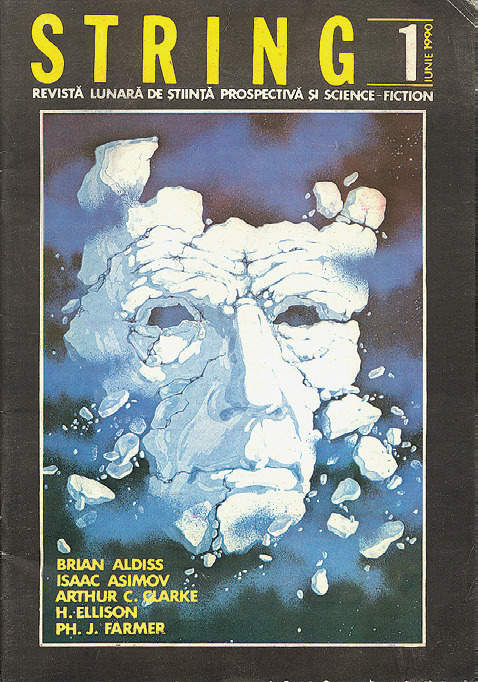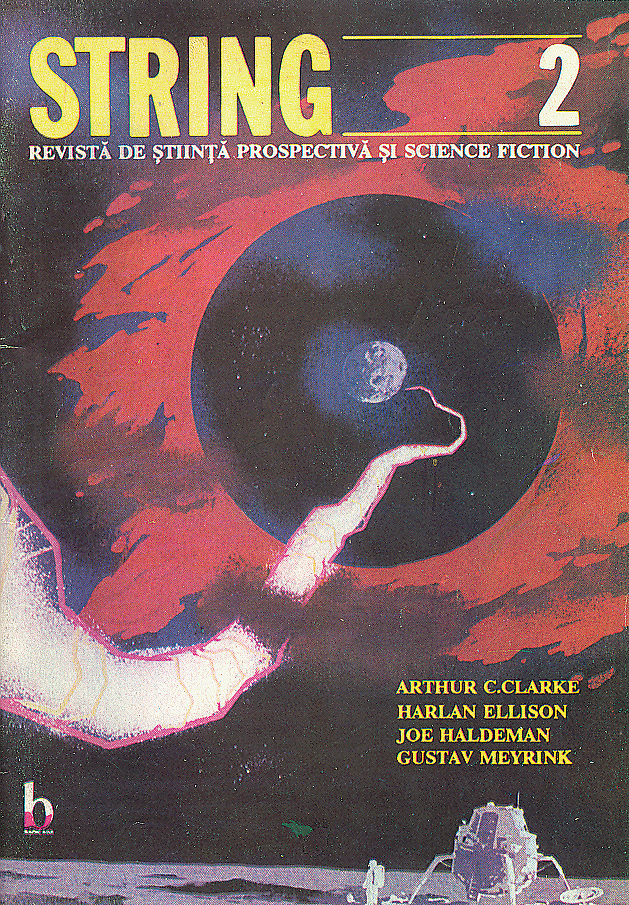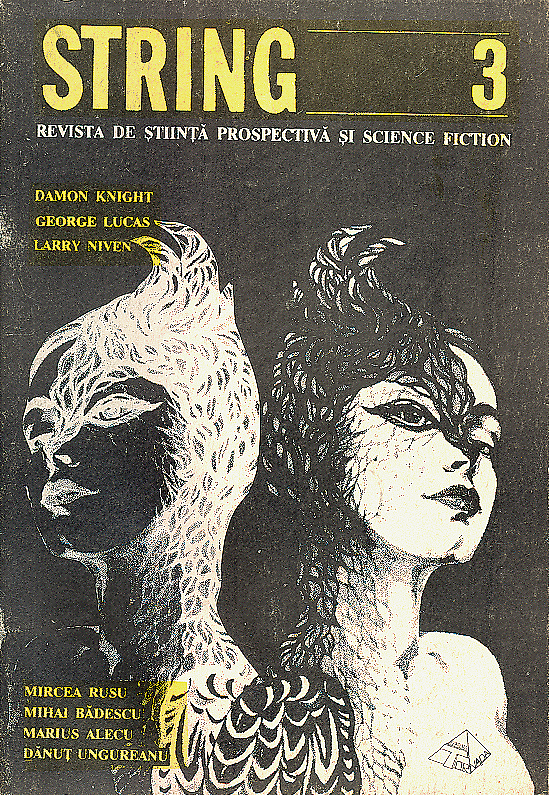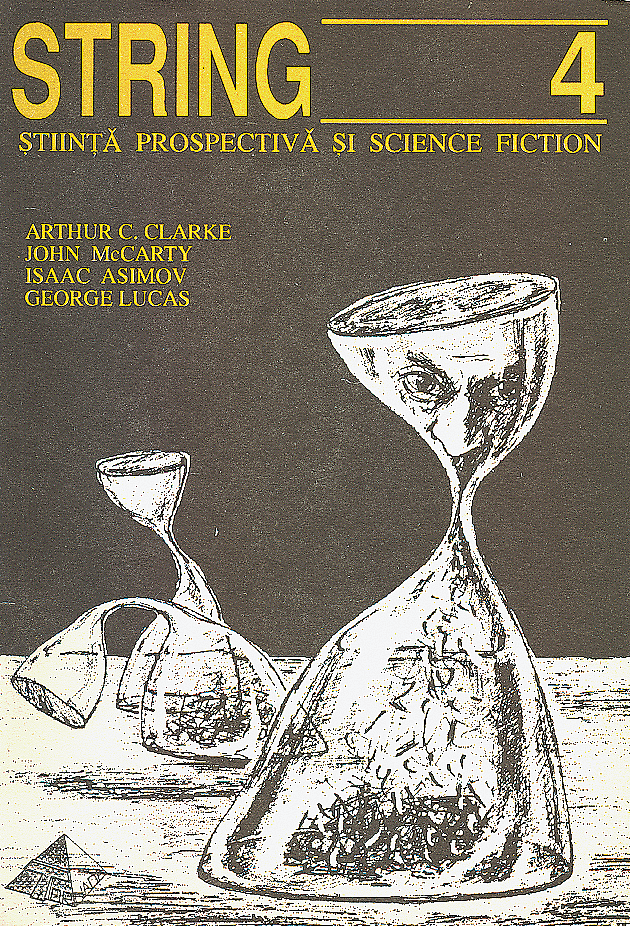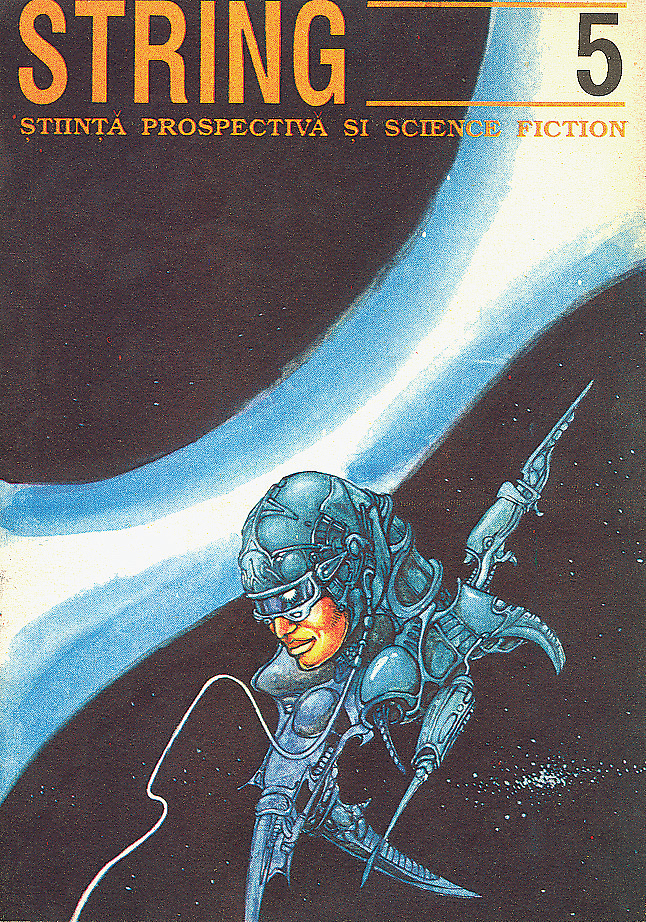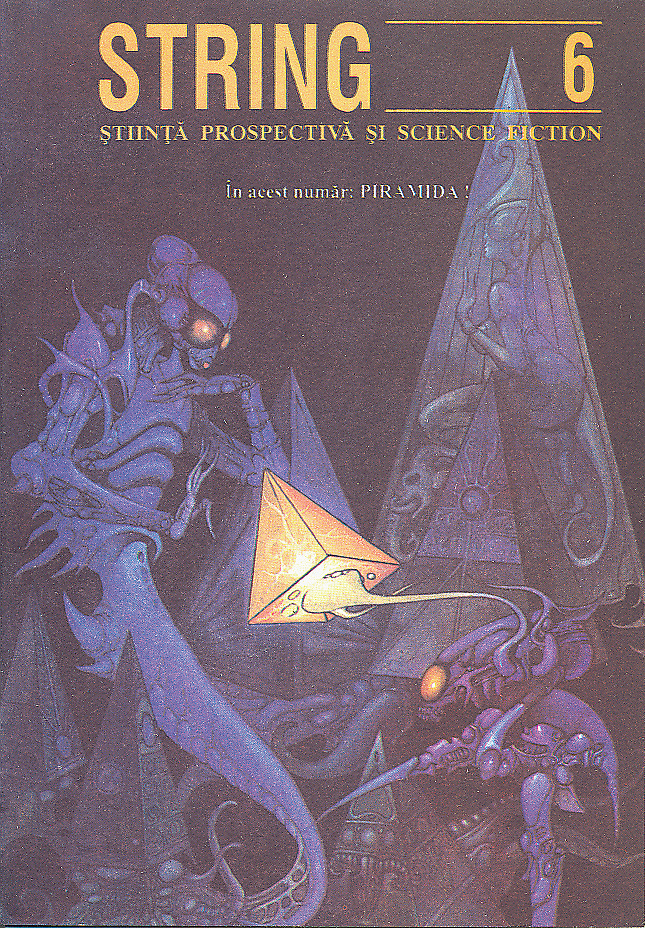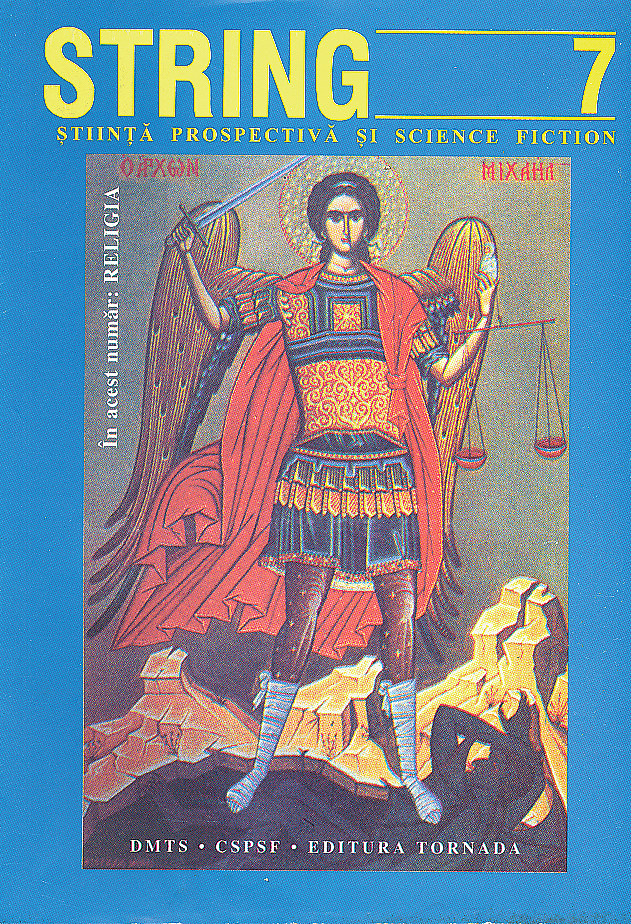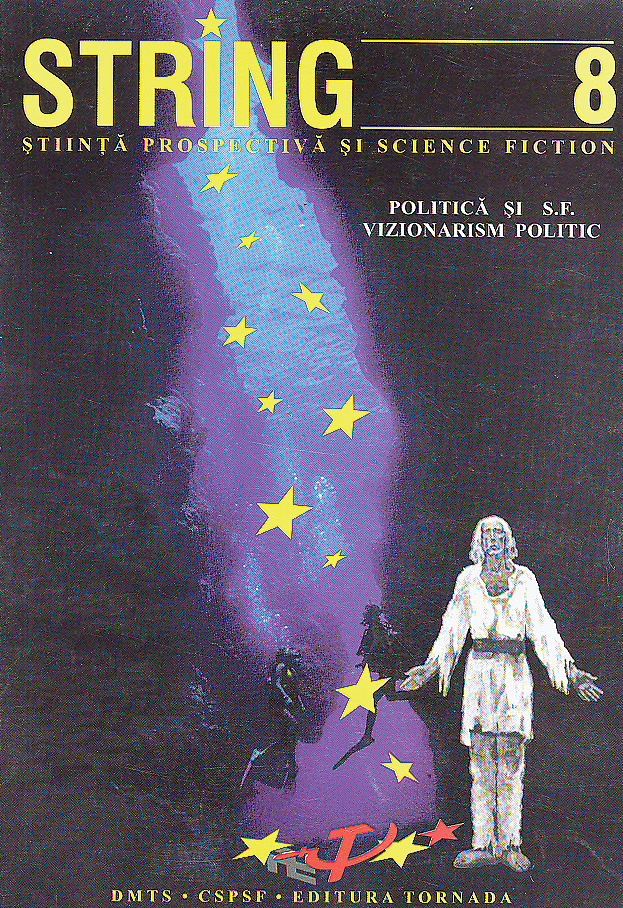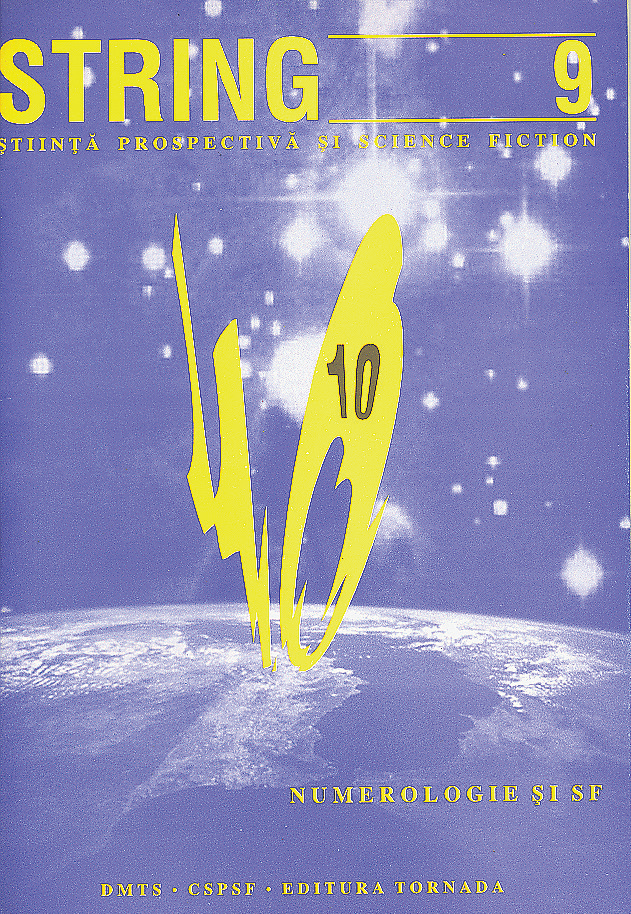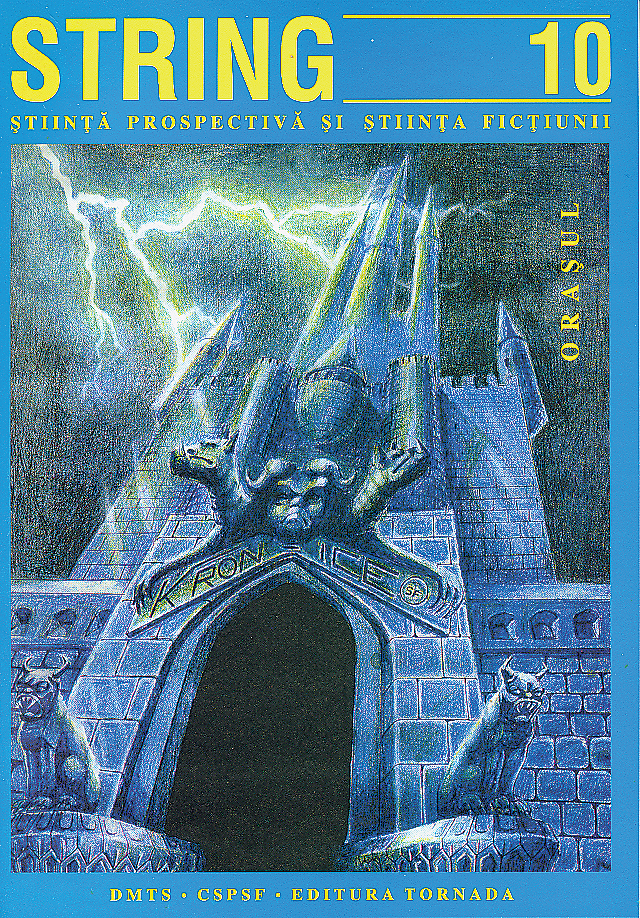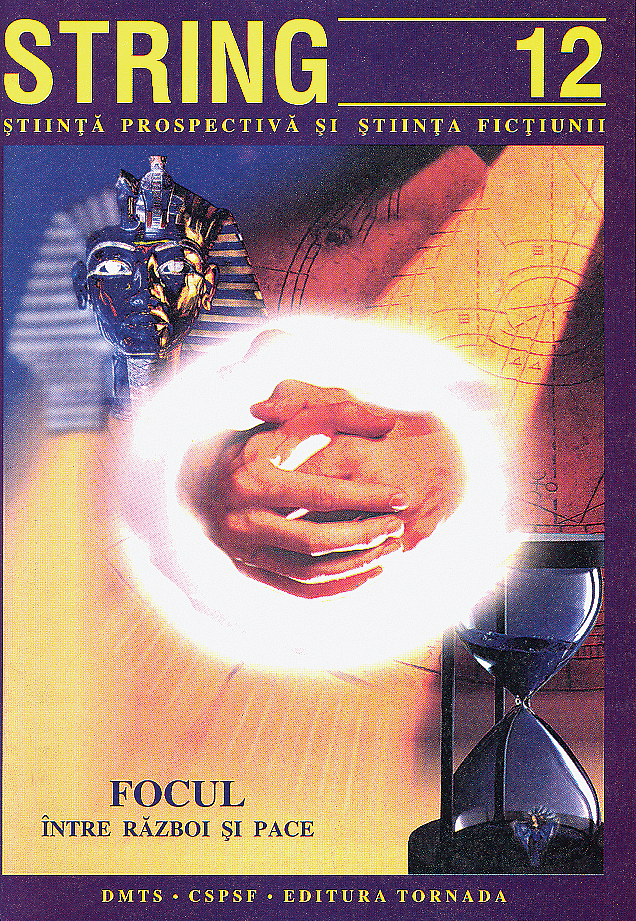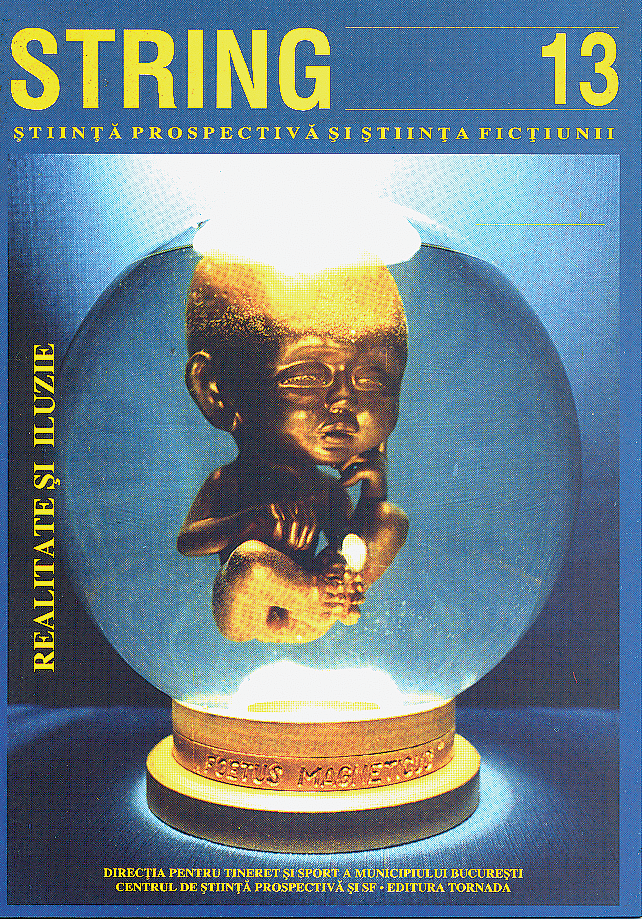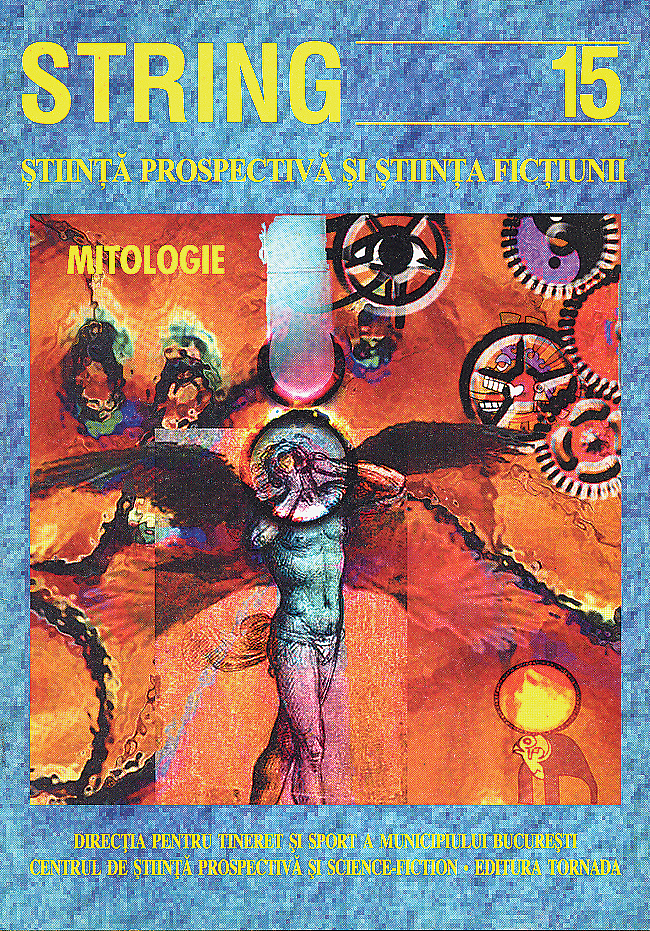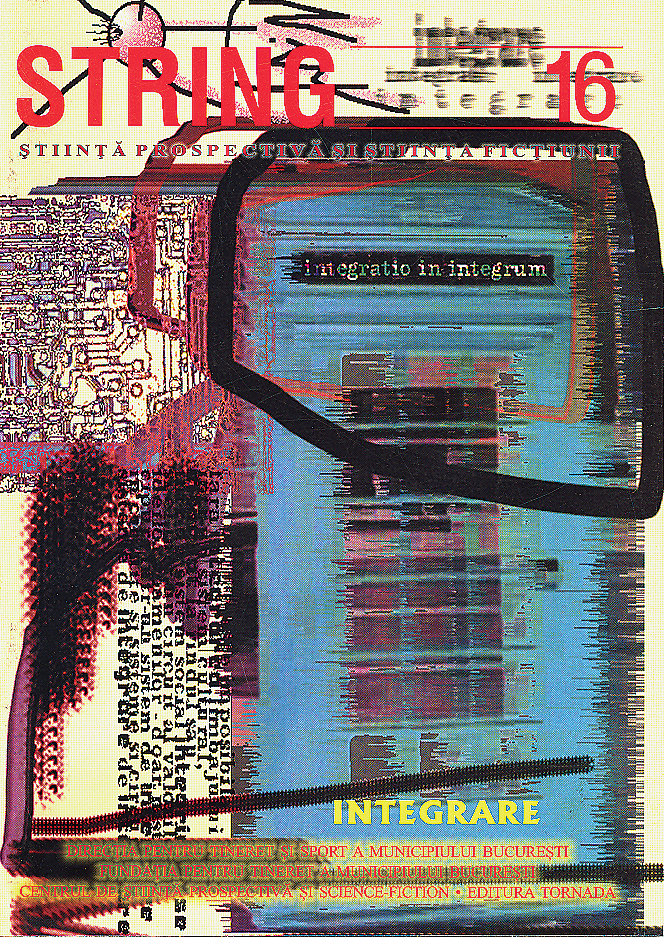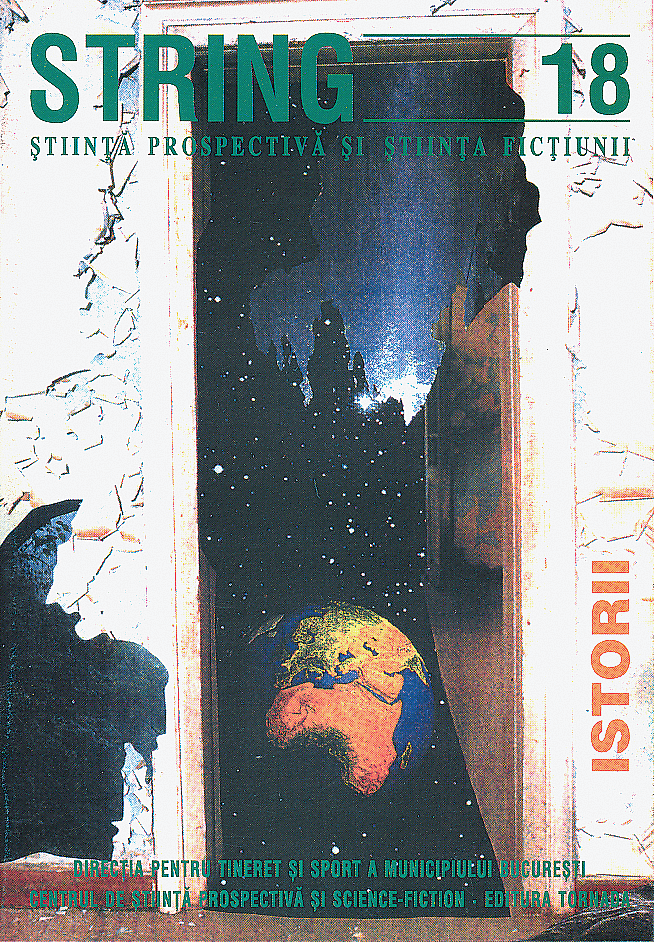String 14 magazine

Night psychiatrist
– Yes, the story probably started during the breastfeeding period. My mother didn't have enough milk, and by the time she realized this and hired a wet nurse, I was crushing her breasts with the desperation of hunger. Of course, the liquid that reached my mouth was a mixture of milk and blood, more blood than milk... Those memories from my distant childhood, when, after feeling that indescribable terror of hunger, I had the extraordinary sensation of satiety... I feel them stronger and stronger, especially in moments of stress... I feel the need for warm blood, which gives you strength....
The count continued to recount his recollections from the very distant past, and I only half listened to him, allowing myself, in turn, to be overwhelmed by memories... Of the good times of youth, of the years of college and doctorate.... After that had followed less pleasant times, without a job and without a clientele... When Archibald Schnopsfreund had made his office available to me, during the night, it had not been clear to me whether I should thank him or applaud him. Where's the clientele at that time? But I had no choice, it was the only chance I had been given. I had immediately installed an idiotic sign at the entrance: PSYCHIATRIST AVAILABLE DURING THE NIGHT, WE SOLVE ANY KIND OF EMERGENCIES. And I had waited. For the first few days (that is, nights) I slept on Archibald's sofa, then a customer appeared… followed by others. God's garden is big, and a psychiatrist always finds someone who needs him...
I woke up from my thoughts, noticing that my patient had gone silent. I said, in a meditative voice:
- Yes, yes... It seems that modern society, very annoying, produces a regression towards the oral phase... It is not only about the blood, but about the action of suggestion... Interestingly, for reasons that we will find out later, you avoid the anal phase, which causes you such a repulsion, that you refuse solid food, which would involve defecation... We will continue the analysis, we will try to detect when this change in personality occurred. In fact, it is not the moment itself that interests us, but the thing that produced the refuge in the safe and pleasant period of childhood…. Next time, if you agree, I will try to hypnotize you and extract from your subconscious what the conscious refuses to accept... For today I think that is enough.
The count rose from the sofa, threw his broad cloak of black silk with red lining over his shoulders, and with a discreet gesture placed a sheet of gold coins on my desk. Very generous, my client. At the first meeting he had paid me with a huge sapphire, set in platinum. After that, sometimes a jewel, sometimes gold coins...things that valued much more as a work and as an antique value, than by the amount of precious metal. I had told him in vain that he had paid for his meetings for years, he continued to leave me, almost without noticing, what he considered to be my due from a great senior...
I led him to the back exit, because Archibald had set up his office the way a real office should be, so that the patients didn't meet.
- Then, see you the day after tomorrow, Count. At two in the morning.
He nodded and gave me a kind, charming smile, showing his long, sharp incisors. After which he went out into the night, flapping his cape like huge wings.
I sighed, thinking that normally such a customer should have filled me with dread. But I got used to it. The only inconvenience was that I could not hire a nurse, though I could afford one now, as I had afforded to buy Archibald's practice...
I went and opened the door to the waiting room. The patient hurried in and laid down on the black leather couch. He stuck out his big, red tongue at me, then began to tell.
– Last time, doctor, I told you about the moment when I felt the effect of the moon for the first time.
– Very interesting, Mr. McGregor, but the moon effect, the feeling of flying and all the rest are normal manifestations of puberty, obvious signs of awakening manhood. That is not your problem. I'd like to talk a little bit about what preceded your first crisis. Let's go back to the past. Be kind and look carefully at my watch!
I took the old-fashioned watch from the desk and held it by the chain, dangling it in front of Mr. McGregor's wide eyes. He soon went into a hypnotic trance. Then I said to him:
- We are at the moment of the first crisis. what do you see
The patient fidgets on the couch:
– A man on a path in the forest... A poacher. He doesn't see me, He holds a noose in one hand and a rabbit in the other. I am overcome with anger. By what right does he rob me? I rush to him. He turns, sees me, starts screaming, desperate, and his screams annoy me even more….
- Enough. Let's go one day further into the past. Do you see anything?
- Nothing interesting... I'm with my family at the table, in the garden... I eat with my left hand. It's hard for me, almost all the time the piece falls off my fork. The others laugh at me, I get angry, but I don't let anything show, I keep everything to myself...
– Why do you eat with your left hand?
– The right one is bandaged.
- For what reason?
- I don't know...
- Good. Let's go one day further. Is the hand still bandaged?
- Yes.
- Then, let's see what happened the previous day.
- I'm in the forest, near the mansion. I walk without fear. Dougal, the guard, is a few yards behind me. I hear a rustling in the bushes. I turn and see a monstrous beast, a huge wolf, rushing towards me. I take his balls out of his mouth. God, he's mad! Not! Not!
The patient suddenly wakes up. He trembled with terror. I manage to calm him down with difficulty after administering a sedative.
– It seems that we are approaching the moment of explanation. The panic produced by the attack of the beast contributed seriously to the crisis. A personality transfer has taken place. It seems that, in addition to the fear, you were impressed by the animal's power, you came to want such power, to take revenge on those who mocked you. You identify with the wolf, you act like it. For now, it's a guess. We still have work to do. If we were to go by Jung, I'd say you've delved into the collective subconscious and appealed to fundamental myths and clichés…
McGregor stood up from the couch.
– Then, next week, yes? At the same time?
- It's perfect, I answered, putting it in my diary.
She dropped a purse on the carpet, which she had hung around her neck, then headed for the back door. I opened it for him, after collecting the fee from the bottom. I knew it was full of bills, as usual. Another serious and profitable customer…
- Goodbye, doctor, he said to me, wagging his tail.
I didn't have to invite the next patient. He had already entered the office and settled on the sofa, spreading a greenish light.
- Good evening, Mrs. Theodopoulos, I greeted her politely.
He smiled at me sadly.
– I can't find my peace, doctor. I am very agitated and find myself wandering around until morning. And when I sleep, during the day, the same nightmare haunts me.
– The one where the husband holds you under water and you drown.
– Exact.
– Dear Madam, your case is, as I have already explained, very simple and very complicated. We know the cause, we know the effects, we know the therapy. We just have to be patient. The moment you were killed gave you a very complex feeling, of helpless panic, mixed with frustration, desire for revenge... First of all, you couldn't believe that the husband you loved so much was capable of such a gesture. The feelings were so strong that they did not disappear with physical death. But deny your own part of the fault, the fact that you have been blind so long and have seen only what suited you. It's been so long since the events that you should have forgotten everything. You got your revenge, justice was done. But you cannot forgive your blindness, try to delude yourself that you have contributed nothing to your own unhappiness. I think we need to carefully examine the past, to discover all the signs that predicted the catastrophe and which you ignored. Because if you had paid them due attention, everything would have ended with an honorable divorce and without tragic consequences. I would suggest starting with the moment you met Mr. Theodopoulos…
- I was at a party given by the Kennedy family. A lot of people, cramped... I felt a bit awkward, because I was just starting out in society...
When, finally, I finished the session and the patient decided to leave, she said to me:
– Doctor, go to the races on Saturday. Bet on Trotter-Blue.
Then he disappeared, going through the wall. Mrs. Theodopoulos used to pay for her consultations by information, because, not being material, she could not carry anything. But it was still good, I had gained a lot from her.
It was already six in the morning, outside the dawn announced the day that was struggling to come, so I didn't have any more clients scheduled. But just to be sure, I opened the door to the waiting room. To my surprise, on the bench was a man in his fifties with a bald head and a moustache. I looked at him in surprise and invited him inside.
– Sir?
– Emilio Martínez
– And what problems do you have, Mr. Martinez?
– Doctor, I'm a night watchman at the store downstairs. A good job, well paid, no big problems. But after a while I started hallucinating. All night I see vampires, werewolves, ghosts, all kinds of monsters entering the building. I thought I should treat myself.
– Very well, Mr. Martinez. You've come to exactly the right place. Lie down on the couch. Let's start by finding some event in your childhood that could justify such visions. So what is your earliest memory?
In the shadow of man...
Who's in the shadows? If we correctly define the answer to this seemingly unimportant question, we may find out what is the fate of man.
To be clear, let's first determine the answer by considering only humans. In the shadows are two categories: those who, by their nature, are shy, shameful, without confidence in their own strength; and those who, ambitious and treacherous, hide their own nature and worth, in order to act stealthily, to surprise others and strike them in the back.
In no case is it a question of weakness or incompetence. Popular wisdom clearly states: The fool, if he is not a fool, is not fool enough; and The snake goes out on the high road, pointing out that certain categories try to stand out, even if they lack intellectual and moral qualities. The categories that sit in the shadows do not hide out of weakness or fear. The first Christians did not hide in the catacombs for fear of the authorities, the thirst for martyrdom would rather have pushed them to publicly affirm their creed. Rather, they were hiding from a decency that did not suit the era, from the conviction that you cannot make a circus out of faith. Otherwise, all the great religious teachers - Moses, Jesus, Mohammed, Buddha - did not shy away, they preached their doctrine openly, facing pharaohs and emperors, even their own countrymen. Instead, the obscure heresies, about which we do not know much even now, were hidden, either out of the belief that the masses could not understand them, or knowing that they would shock their contemporaries too much. The secret orders did not want the light of day because the goals pursued had nothing noble (or the means used had nothing to do with the purported noble goals), preferring the shadow as a hiding place, as a cloak for their macabre intrigues.
But in the shadows there were also advisors of great statesmen, scientists of great value or creators of beauty. Shyness, lack of confidence in one's own strength, an extreme modesty or disdain for bad publicity, with all its bells and whistles - these are reasons why people of obvious worth and morality preferred subordinate roles, wanted to remain in the shadow of others, more suitable or gifted for public life.
So we can remember that, from the start, those meant for the shadow are of two categories: those permanently meant for the shadow - shyness, mistrust, etc. they will keep them out of the limelight – and those who temporarily retreat into the shadows to craft better.
This second category is convinced that retreating into the shadows is temporary, that after a while the goals will be achieved and it will come out ahead. The desire to be in the foreground is great, sometimes the members of this category no longer wait for victory, they do a resounding feat, designed to attract the attention of the public. Thus, a secret movement takes hostages, attacks a public institution or a television station. Operations of this kind are useless, the participants end up tragically, without benefiting from the fame they want (maybe only postmortem), so coming out of the shadows leads to the annulment of existence of any kind, the light is too strong, it burns the creature, turns it into ash.
But there are also people who withdraw into the shadows voluntarily, forever, refuse to come out into the light, although no one (except their own conscience) prevents them from doing so. In history there are many cases of quasi-obscure keepers of secrets, which led to the perpetuation of castes, guilds or orders, along with their secrets. These keepers—a sort of monks of non-religious faiths—were the possessors of great power and wealth, which they used for purposes which they—and the brotherhood (of whatever kind) they belonged to—considered just and inevitable.
We can generalize the above to any non-human intelligence, whether terrestrial or extraterrestrial.
There is the possibility of higher level civilizations standing by, studying us from the shadows, without intervening in the destiny of our race.
There is the possibility of races that, feeling that they cannot compete with human expansion, hide (underground, underwater, in wastelands, etc.) to survive.
And there is also the possibility that representatives of intelligent races are hiding even among us, avoiding revealing their intellectual capacities, so as not to draw attention to them that could quickly turn into suspicion, which would quickly evolve into enmity.
The legends of the people mention gnomes, goblins, vampires, goblins and other creatures with more or less superhuman qualities, who lead their existence on the fringes of human society, rarely coming out, being encountered by members of our race only by accident. The attitude of some is benevolent, of others it is obviously hostile, but regardless of their mode of action, of the goal pursued, they stay hidden, avoiding attracting attention. This does not mean that there is no possibility of a surprise attack that would change the current balance.
But besides these humanoid creatures, both in appearance and in mentality, there may be beings who have nothing in common with man, either in the character of intelligence or in appearance.
Much has been discussed about the race of the future, the one that could dethrone man. If dolphins, dogs, horses, pigs, cats, rats, monkeys, are still mammals - which implies that their intelligence will not, in principle, be very different from ours, the same cannot be said, for example, about insects.
Bees and ants have an apparently social organization based on a strong specialization of individuals. If they make the leap to higher intelligence—if they haven't already—that intelligence won't be very human-like. Not from the point of view of concepts, but from the point of view of elementary logic. Human thought is, by its essence, individualistic. That of insect colonies will be collective and collectivist.
Suppose bees, ants, cockroaches, etc. they took that leap. How will we recognize it? How will we know that those beings are of superior intelligence?
Our intellectual distortion, which is based on the arrogant and selfish idea of anthropomorphism and anthropocentrism, makes us consider our own manifestations as signs of civilization. If there is no human technology, we conclude that there is no civilization.
But if we are dealing with a civilization that does not resemble ours?
How could we communicate with beings who have different senses, who think according to a different logic, who have different social and moral standards (which may not seem like such things to us)?
It is therefore possible to live alongside civilizations of a different kind than ours, ignoring them completely, behaving - out of ignorance, not malice or fear - with a cruelty that can arouse resentment. We can make enemies we don't suspect. For now, their reply is inconsequential, possibly annoying or annoying, not dangerous.
But what if things will evolve? What if these enemies who live in our shadows discover the secret of our weakness and, when we least expect it, strike mercilessly, dethroning us from our unconscious perch?
Of course, there is also the possibility that our potential enemies will ignore us, just as we ignore them. The impossibility of communication also applies to them. It is very possible that they also do not recognize our intelligence and civilization, consider us some blind forces of nature, a fatality of life, a fatality that cannot be understood and that must be endured. However, just as man tries to remove certain manifestations of nature - which seem harmful to him - and fights against them without hatred and passion, so it could be that those in our shadow work to remove us, without suspecting the existence of dreams and ideals that direct our existence.
It is therefore possible that both man and other civilizations (earthly, but non-human) destroy each other, without thinking for a moment about the possibility of a peaceful coexistence.
But as long as human society is in a continuous struggle, when individually or in groups, people strive to destroy themselves - although there is every prerequisite for understanding each other - how can we hope to live with a civilization of whose existence we know nothing, which is alien to us in its structure?
Because there is a terrible paradox: we can only get along with those on our level. So we cannot get along either with those below us or with those above us. And it is quite possible that a higher civilization will treat us with the same understanding that we show to ants, that is, liquidate us with an insecticide (humanicide would be a more appropriate term) without remorse or remorse.
And don't we deserve our fate?
But would that mean it's the right thing to do?
No, but it's in the nature of things...
SHADOWS
He considered himself a pretty good painter. However, he had never deluded himself – he knew he was not among the top. His paintings sold quite well, but he had found that he lacked the ability to print that special something that would give the beholder a thrill.
He worked diligently, for hours and days after days. He worked hard until even the most hidden lines and shadows succeeded. There were other days when he wandered unhurriedly through galleries and museums, tirelessly looking at paintings, some famous, some unknown, seeking to discover and understand. However, he was always struck by the impossibility of instilling the spark that would give life to what he painted.
Still looking at his canvases, he tried to walk on crowded quays, wander through narrow streets or among centuries-old trees. They were his, but he felt they didn't belong to him. It was more difficult for him to deal with the careless figures who did not let him penetrate their souls. However, spending so much time with them, he found it increasingly difficult to leave them. He loved this universe—with the sea, the crowded buildings and quays, the old, still trees. He wanted to be a part of it, but he was alone in this silent world of color spots.
One day, as he walked through the winding streets looking for cheerful or worried figures looking through him, he realized that the sea was fake, and the buildings, and the trees too. It had begun to rain; the horizon darkened, the colors mixed to form cold greys. He ran his hands through his wet hair and uncovered their gray-blonde. He dipped them in sea water and the fingers turned blue. He wanted to run away, but he couldn't. Suddenly aged, he set off through a tangle of lines, lights and shadows.


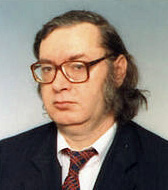
 Română
Română Deutsch
Deutsch English
English Español
Español Esperanto
Esperanto Français
Français Italiano
Italiano Latīna
Latīna Português
Português 中文(简体)
中文(简体) 日本語
日本語 한국어
한국어